A Gift of Anticipation: Gosford Park and its Inspirations
February 14, 2020 By Go BackIf you’re part of the ardent fan base for the television show and recent theatrical event Downton Abbey, you owe a great deal of gratitude to director Robert Altman. Twenty years ago, Altman directed Gosford Park (2001) giving Downton Abbey creator Julian Fellowes his first job in motion pictures. Fellowes, at the time a noted British character actor, was asked by Altman and creative partner actor Bob Balaban to script a decidedly British throwback – without having ever written a screenplay, Fellowes used his British pedigree to synthesize an Agatha Christie meets Upstairs, Downstairs whodunit for the two American producers.
It was an opportunity, that when combined with the immense directing talents of Altman, would see Fellowes win an Oscar for Best Original Screenplay. It would also prove to be Altman’s greatest box office success after 1970’s M*A*S*H. In reviewing Gosford Park today, it’s remarkable seeing how much of Downton Abbey’s DNA is shared (Fellowes designed the BBC miniseries as a Gosford Park spin-off, but the project soon became an entity of its own). And while there are narrative similarities (indeed, Maggie Smith’s character Countess Trentham is duplicated for the scene-stealing Countess Dowager Grantham in Downton), Altman’s film has one thing that Downton does not – murder. As stated by Lady Trentham in Gosford Park, the English countryside, with its open-season hunting sessions and “poisonous paradise” of servants’ pantries seems “more dangerous than Piccadilly [Circus].”
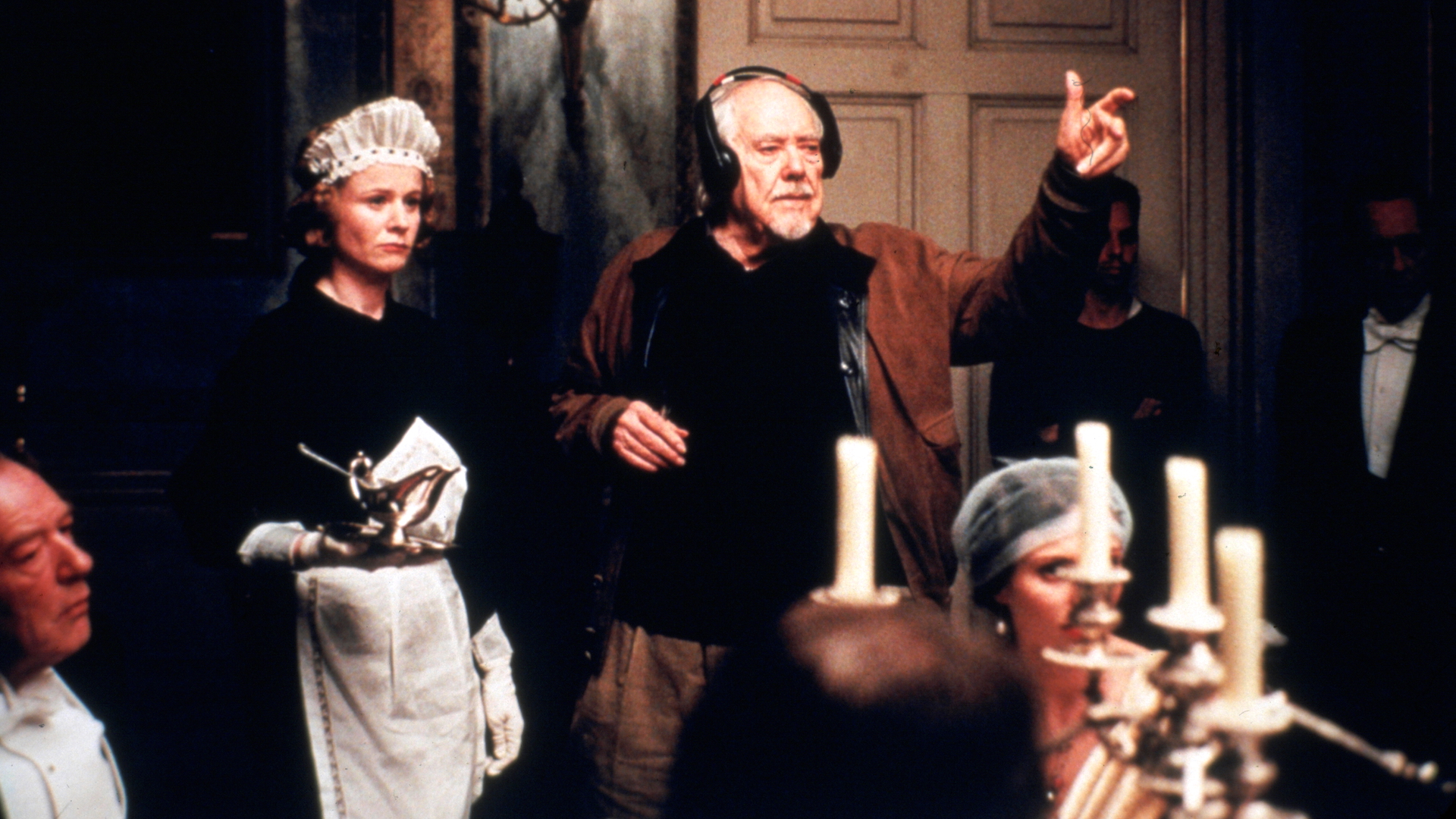
In 1932, a pheasant shooting party draws the landed aristocracy to vastly wealthy industrialist Sir William McCordle (Michael Gambon) and his wife Lady Sylvia’s (Kristin Scott Thomas) English countryside estate. The party, made up of McCordle’s extended family and a few of their guests, people the house with not only the well-to-do, but also their servants, who must intermingle with the vast staff of McCordle’s estate. Staff rules at the house are strict, punitive, and manifold. Downstairs in the service areas of the house, the regiments of polishing silver, rotating linens, and cooking are draconian. Upstairs, the routine of dressing and dining are exacting with detail (details always catered to by ladies maids and gentlemen butlers). Roasted wild game, jellied meats, sugar-dusted petit fours overpopulate enormous dining tables – it’s the kind of eating regimen where the wrong pot of jam at breakfast can sully an entire day. These things matter and they matter greatly to both the servant class and the class they serve.
Not all the attendees of McCordle’s estate are British, however – his invited cousin, the screen idol and composer Ivor Novello (the real-life collaborator of Alfred Hitchcock in his early British silent career) has brought along a Hollywood director – Morris Weissman, played by Altman’s co-conspirator in Gosford Park’s conception, Bob Balaban. Researching a Charlie Chan film that will be set in England amidst a hunt, Weissman observes the British eccentricities of the gentry with fascination and ineptitude. In many ways Weissman is aligned with the audience in his befuddlement with the rigidity of British aristocratic rules – as he is bluntly told after attempting to order breakfast: “an Englishman is never served breakfast,” but rather “buffets,” and his trendy vegetarianism causes a near riot downstairs in the kitchen.
For these Brits, Hollywood is decidedly debased, and both Weissman and Novello (despite the latter being family) are aligned with a disreputable class (a clever tongue in cheek jab at the Hollywood system Altman rejected throughout his career). What Altman and Fellowes provide viewers is a front row seat to an exclusive world on the brink of extinction. A pre-WWII Britain where class distinction matters most (as constantly pointed out by Maggie Smith’s Lady Trentham). It’s an empire that is about to crumble, but not before a final boozy, whipped trifle is served in crystal goblets.
If Altman and his production crew provide many pretty things to look at upstairs, downstairs is where the real intrigue comes to Gosford Park. There’s the mysterious “Scottish” footman of the Hollywood director, played by early 2000s heartthrob Ryan Phillippe, Helen Mirren’s embodiment of the rigid figurehead of the servants, Mrs. Wilson, the rapacious scoundrel of a butler George played by Richard E. Grant, and the newly-arrived servants of houseguests Mary (Kelly MacDonald) and Robert Parks (Clive Owen). Like the Hollywood outsiders upstairs, Mary and Mr. Parks must navigate the stringent decorum of the house with little knowledge of how things work – it’s through them the viewers are most closely-allied downstairs. If gossiping about their employers and arguing over the chain of command occupies most of their time, once Sir McCordle is found murdered in his study after dinner, tension erupts as much downstairs as up.
If Gosford Park owes much to its British antecedents – darkly comic Agatha Christie mysteries and the beloved 1970s’ sitcom Upstairs, Downstairs, Altman and Fellowes owe perhaps even more to French director Jean Renoir. Renoir, the son of famed Impressionist painter Pierre-Auguste wrote, directed and starred in 1939’s The Rules of the Game (Le Règle du Jeu)—a film that despite its banning by the French government for its problematic depictions of the French jet set, would go on to become one of the most acclaimed films of the twentieth century. Like Gosford Park, the film is divided between the impressions of the upstairs guests (gathered for a hunting party) and the downstairs servants. When a murder occurs, the same frenzy occurs downstairs (with well-guarded secrets threatened to be revealed), while upstairs the family members of the deceased seem relatively unfazed.
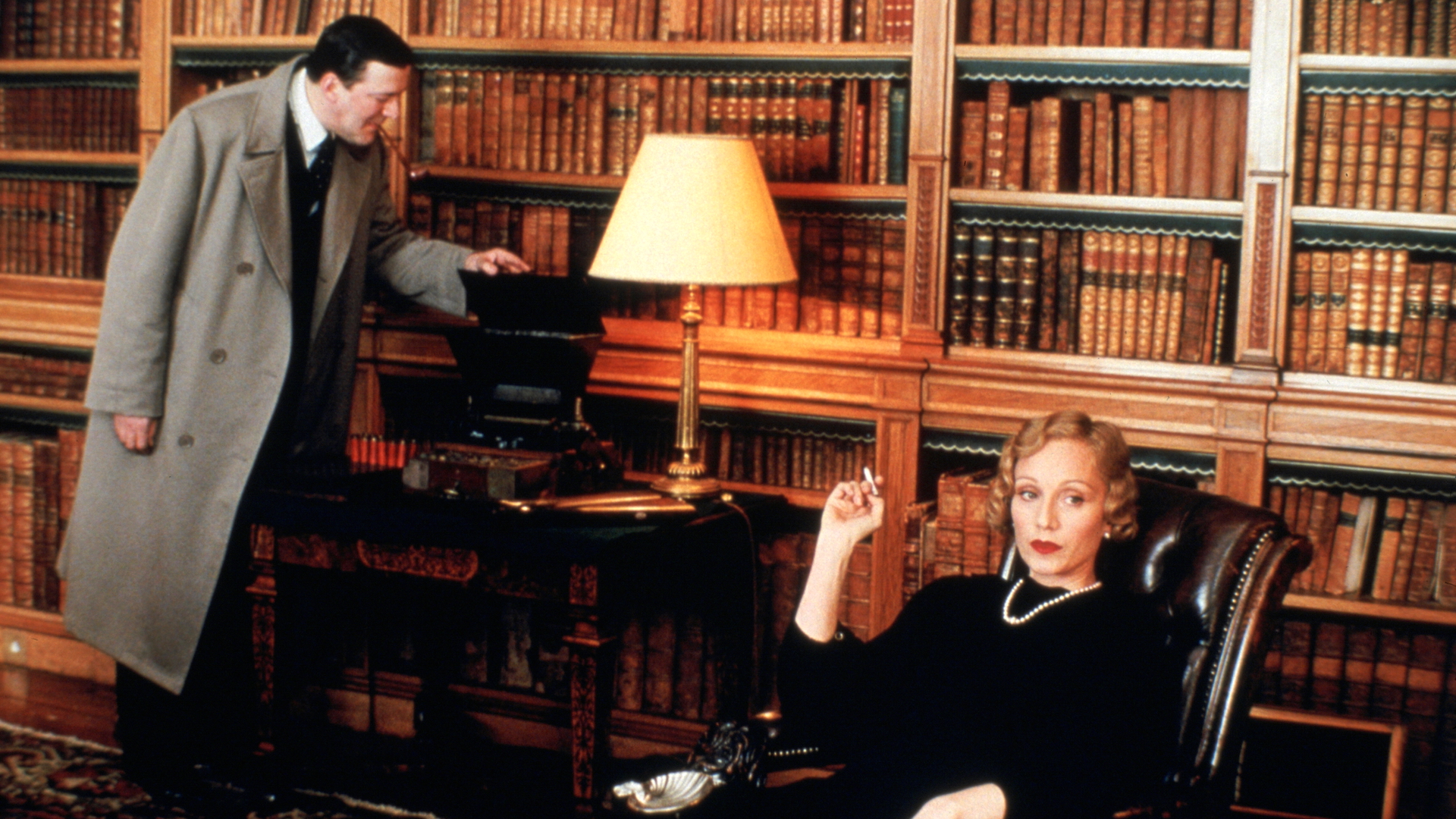
If the downstairs reaction in Gosford Park mirrors Renoir’s masterful, fatalistic comedy of manners, upstairs also has much in common with the bourgeois surrealism of Luis Buñuel and his The Exterminating Angel (1962) in particular. As the inspector in Gosford Park (Stephen Fry) ineptly attempts to interrogate the manor’s wealthy guests and Sir McCordle’s heirs, he demands they stay confined to the house, despite their immediate desire to flee. It’s a similar situation to the Buñuel film, where the Spanish bourgeois find themselves abandoned by servants after a dinner party and inexplicably unable to leave their hosts’ home. Without the rigid social order between the servant class and those they serve, the elitist aristocracy turn feral. If Buñuel (and Renoir before him) wanted to depict the barbarous amorality of the privileged classes, as well as their complete disrespect for emotional and familial bonds, then Altman with Gosford Park takes it a step further, transplanting what’s missing from the McCordle villainous brood and placing it firmly with the downstairs characters.
Without spoiling anything Gosford Park provides an answer to the plot’s murder mystery and the payoff is remarkable. While The Rules of the Game and The Exterminating Angel (and Agatha Christie for that matter) offer a theoretical and political premise, and recent box office hit Knives Out instills absurdist comedy into the scenario, Altman provides heart, making Gosford Park timeless and ever as effective today as when it was released twenty years ago.





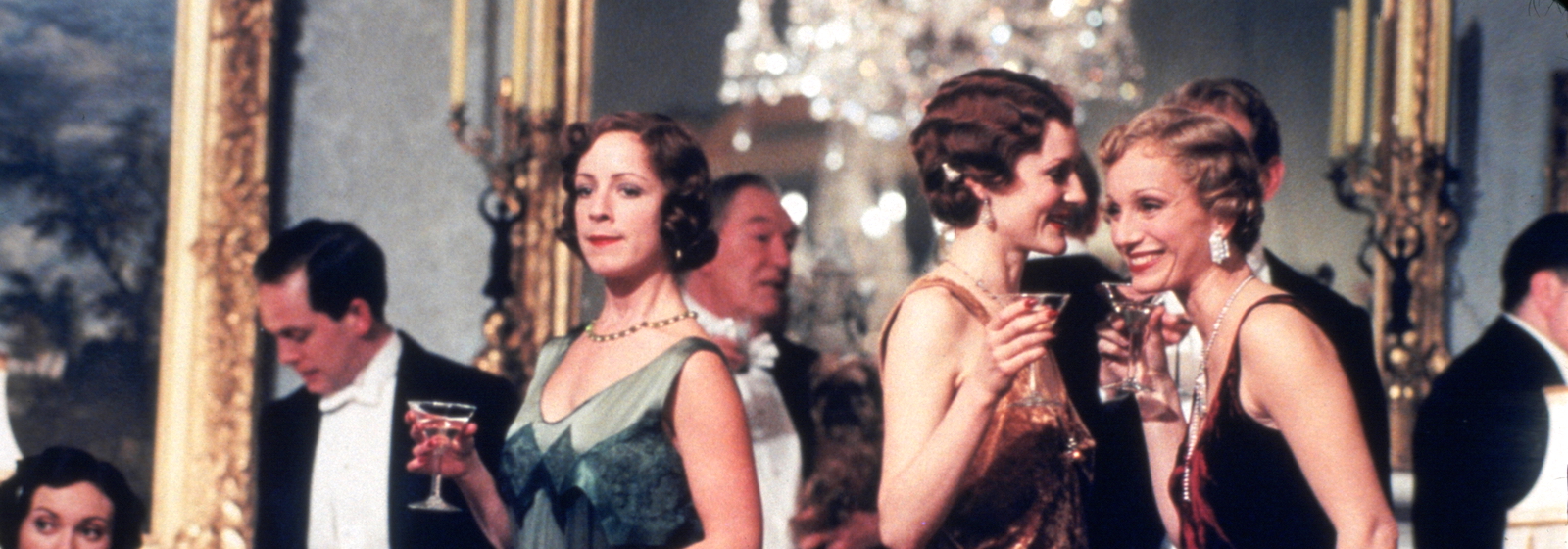
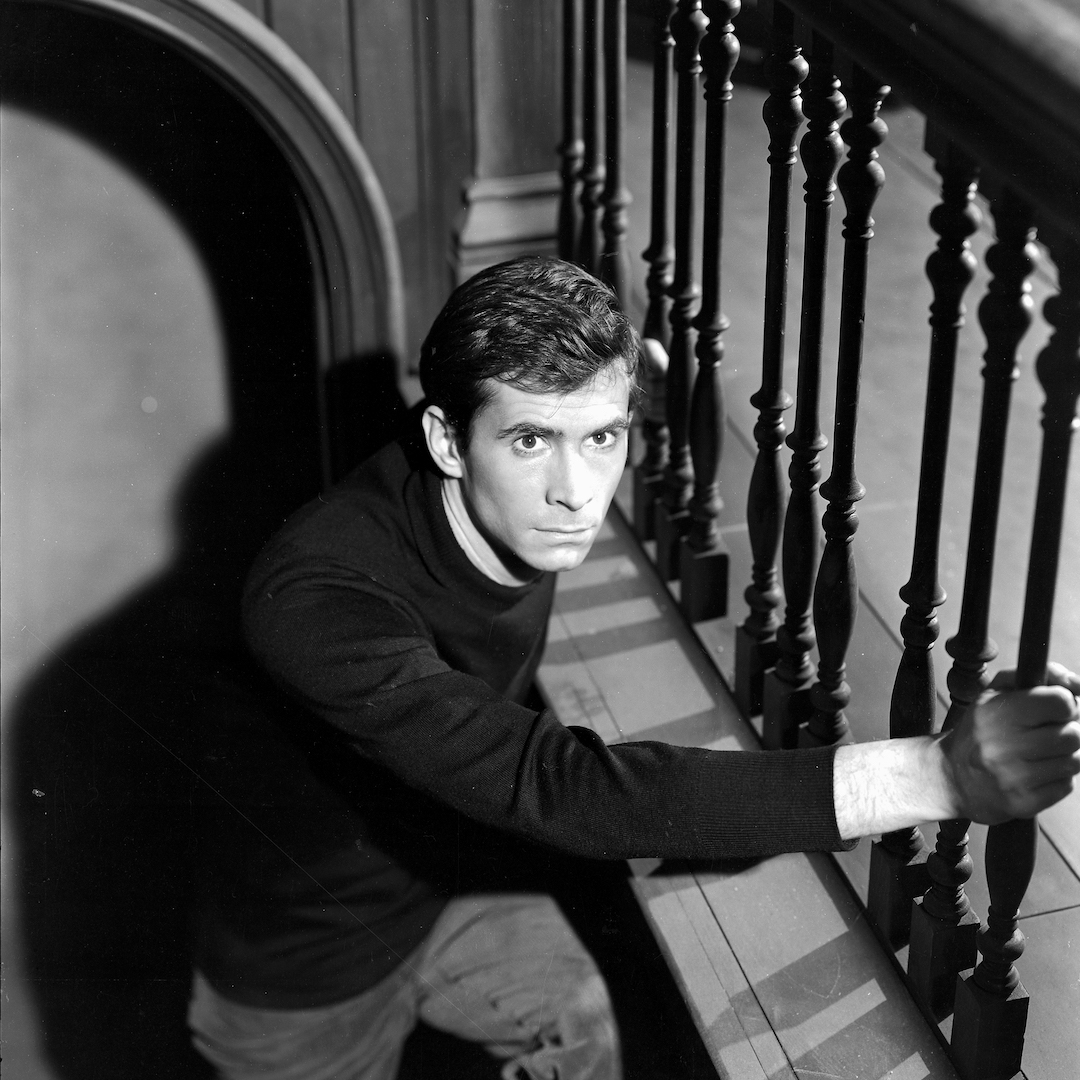

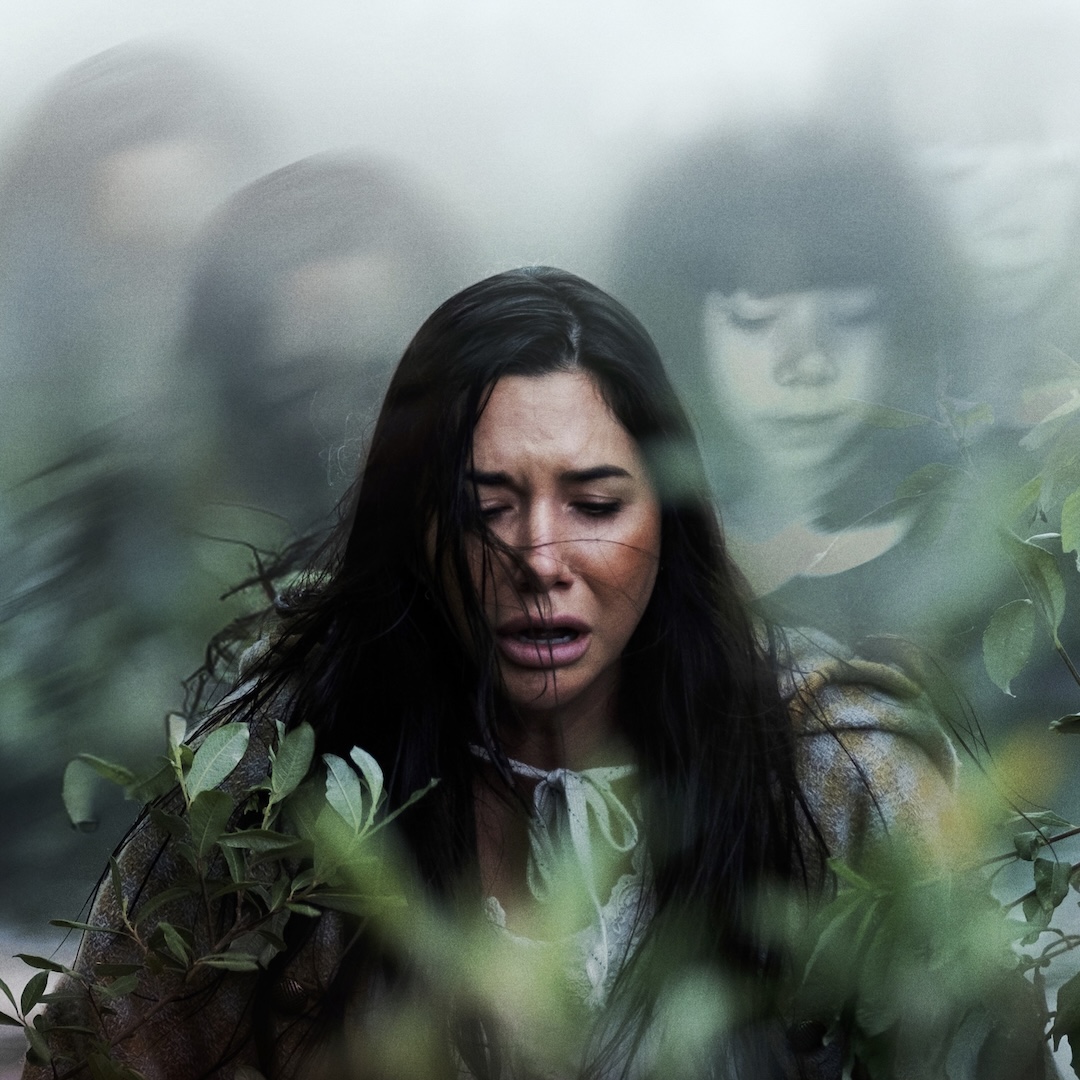


 Follow us on Instagram
Follow us on Instagram